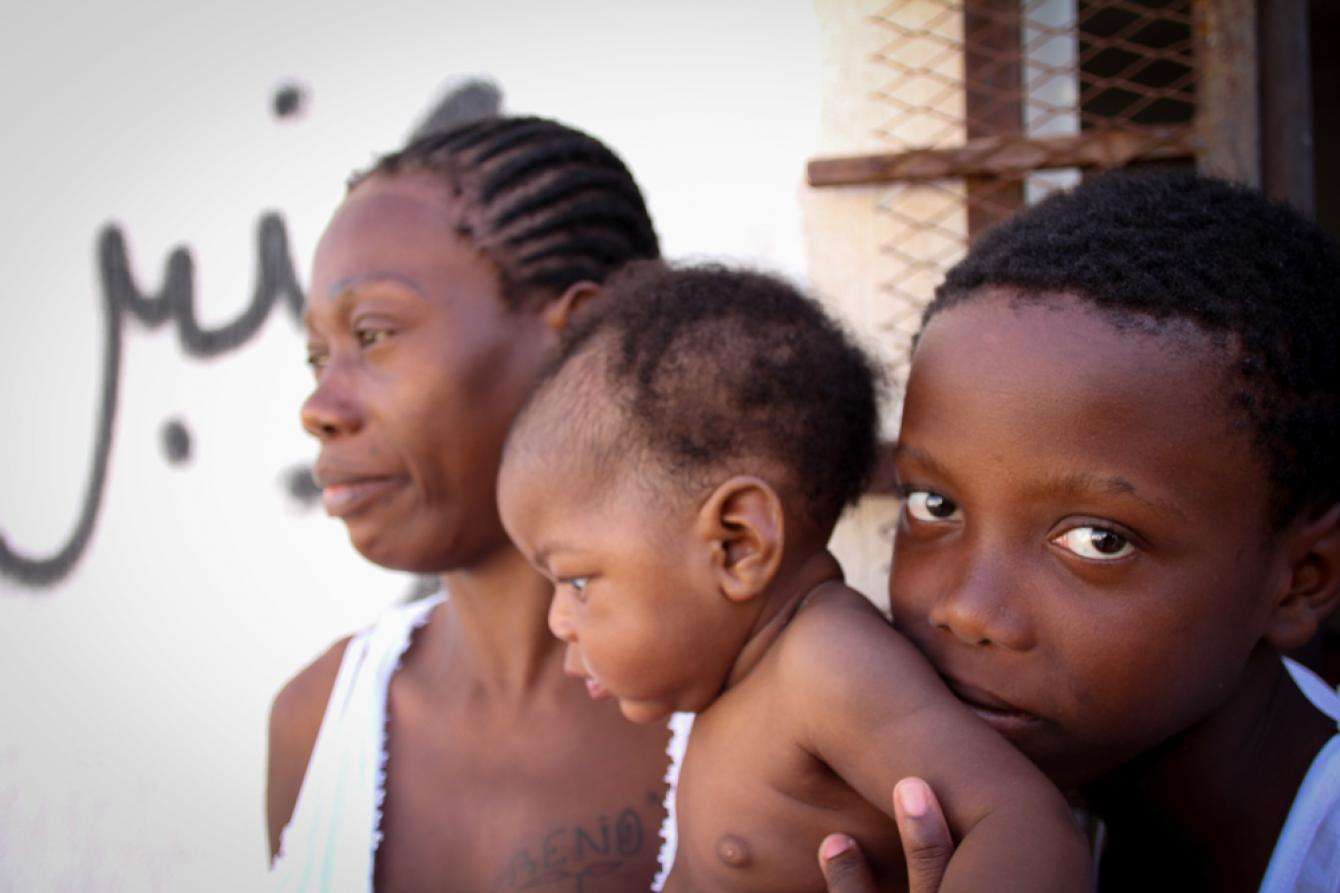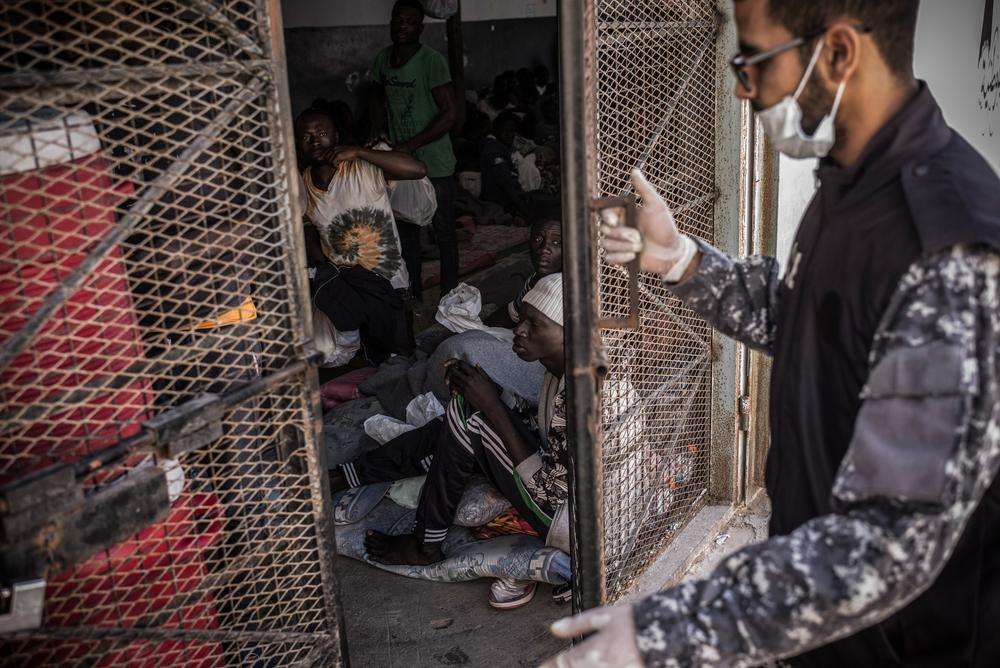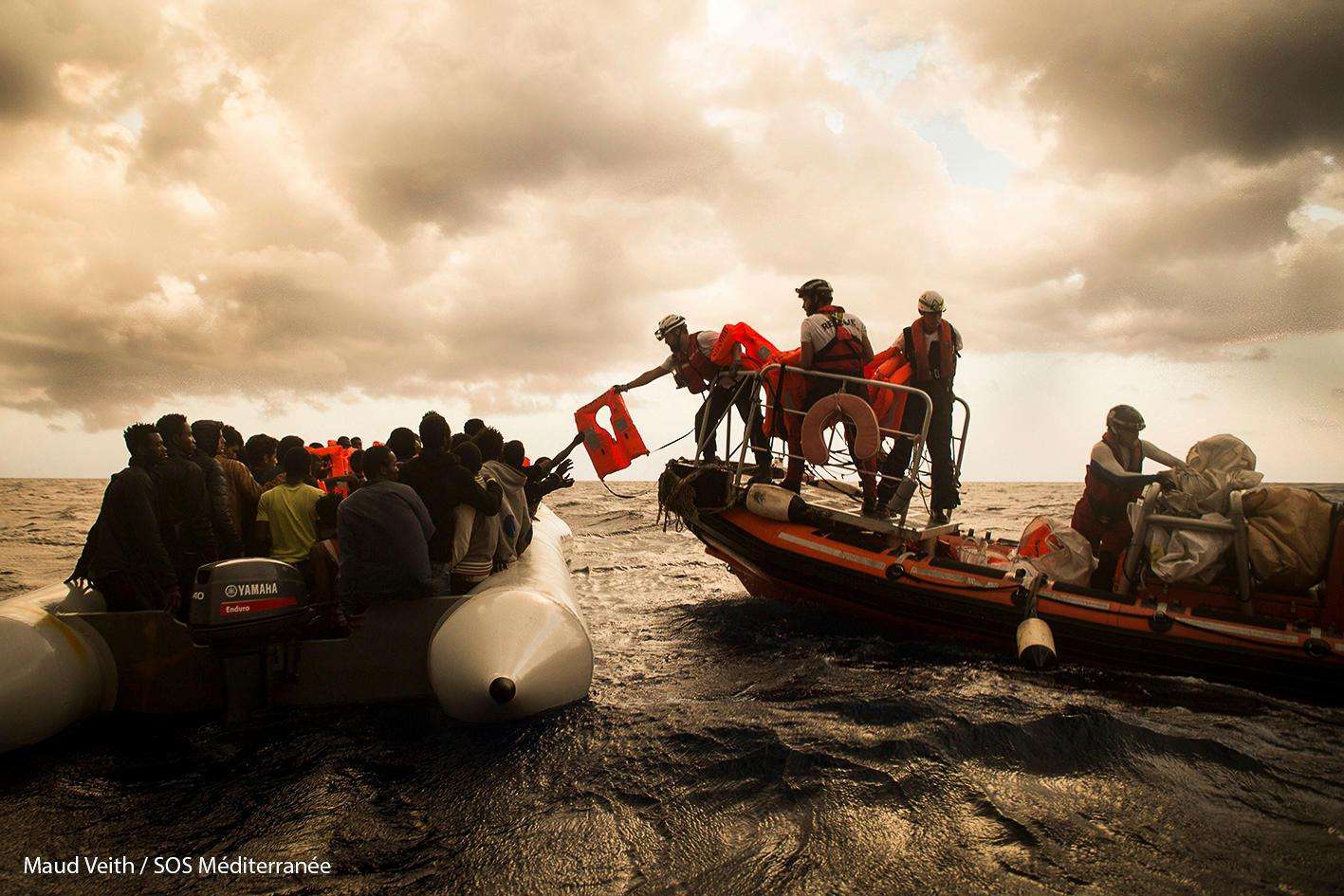SEPTEMBER 10, 2018—More than 100 people died in a shipwreck off the Libyan coast in early September, and the remaining survivors—including people with severe burns, pregnant women and babies—are now held in arbitrary detention in Libya, the international medical humanitarian organization Doctors Without Borders/Médecins Sans Frontières (MSF) said today.
An MSF team has provided medical care to survivors, who described their ordeal.
Two rubber boats left the Libyan coast in the early morning of September 1, carrying hundreds of people of different nationalities, believed to include Sudanese, Malians, Nigerians, Cameroonians, Ghanaians, Libyans, Algerians, and Egyptians. One of the boats deflated and sank, leading to many deaths.
The Libyan Coast Guard disembarked a total of 276 survivors from these two boats in the port city of Khoms, Libya, and only two bodies were reportedly recovered. MSF provided urgent medical assistance after their disembarkation.

A survivor gave the following account to MSF:
"While the first boat had stopped due to an engine failure, our boat continued to navigate and began deflating around 1:00 p.m. We were 165 adults and 20 children onboard. At that time, the mobile satellite phone showed that we were not far from the Maltese coast. We called the Italian coast guard and sent our coordinates, asking for assistance as people started to fall in the water. We were told they would send someone. But the boat started sinking. We couldn't swim and only a few people had life jackets. Those among us who could hold on [to] the boat's floating hood stayed alive. [European] rescuers came later by air and threw life rafts but everybody was in the water; the boat had already sunk ... A few hours later, other rescuers also came by air, throwing more life rafts. On our boat, only 55 people survived. Many people died, including families and children. They could have been saved if rescues had come earlier. More than twenty children have died, including two 17-month-old twins who perished along with their mother and father. The Libyan Coast Guard also arrived, rescuing first the shipwreck survivors and then recovering the second boat."
An MSF team treated survivors for chemical burns caused by contact with spilled engine fuel.
"Our medical team worked solidly for several hours to assist survivors with the most serious conditions," said Jai Defranciscis, an MSF nurse in Misrata, northwestern Libya. "We managed to treat 18 urgent cases—among them were nine people suffering from extensive chemical burns (up to 75 percent of the body) [from coming into contact with fuel]. We organized a referral to the hospital for a patient in particularly critical condition. Without quick access to specialized intensive care, the person would have died."
The survivors were then transferred to a detention center under the control of the Libyan authorities. MSF has provided further medical care to the survivors while they remain in detention. Among them are pregnant women, children and infants, and people with serious medical conditions and chemical burns. MSF teams have also organized six additional referrals to hospital.
It is common for people returned to Libya from unseaworthy boats to be sent back into a harmful system of arbitrary detention. With the support of the European Union, the Libyan Coast Guard returned 13,185 refugees and migrants to Libya from January to August 2018.
"We are extremely worried for our patients," said Defranciscis. "How can they recover when locked inside cells, in very poor hygiene conditions and sleeping on blankets or mattresses placed on the floor that cause incredible pain for those suffering from severe burns? Some of them cannot even sit or walk. We have started to see patients with severe chest infections like pneumonia, caused by being in the water for such a long time."

Inadequate access to clean drinking water and food is likely to delay or prevent people from recovering and may instead exacerbate their medical conditions.
Many of the survivors are mourning the loss of their family members. In addition to the dangers faced during the journey through Libya, they have experienced another very traumatic situation at sea. Instead of receiving the support they need, refugees and migrants are arrested and detained in deplorable living conditions, without basic safeguards, legal recourse, or alternatives.

Among those detained, MSF has met asylum seekers and refugees who have been registered or recognized by the UN refugee agency, UNHCR, in Libya or another country. Their prospects appear particularly bleak: UNHCR-led mechanisms to evacuate them from Libya to Niger and resettle them in a third country, launched in 2017 in the aftermath of the global outrage sparked by CNN footage of people being sold as slaves, have remained at a standstill for several months.
Instead, asylum seekers and refugees face indefinite arbitrary detention and are at risk of being trafficked, as criminal networks are often the only option left for people to continue their journey in search of safety.
Some people also told MSF teams that they had decided to leave Tripoli, Libya, to escape the violent clashes and shelling that began in the city on Aug. 26.
MSF reiterates its call to end the arbitrary detention of thousands of refugees and migrants across Libya and to evacuate them to safety out of the country.
Specifically, MSF urges:
- UNHCR and safe countries to rapidly organize the evacuation of refugees and asylum seekers from Libya and expedite their resettlement;
- The UN migration agency, IOM, and countries of origin to expedite the evacuation and repatriation of migrants in Libya who wish to return to their home countries; and
- European States and Libyan authorities to stop intercepting people who flee by sea and returning them to Libya as a means to prevent arrivals to Europe.






